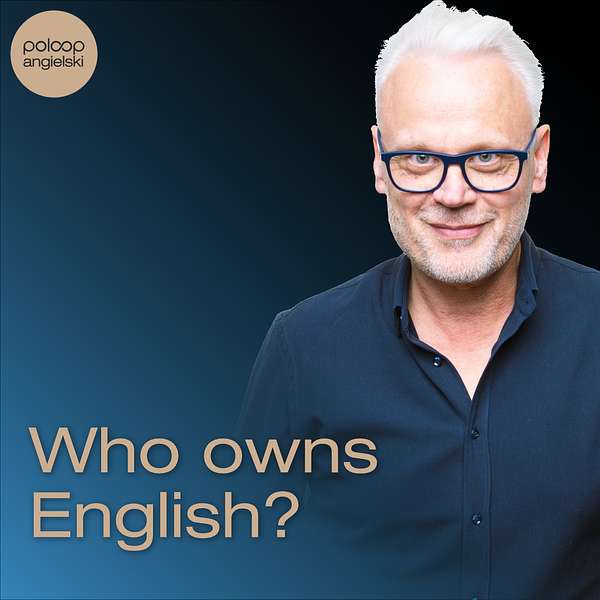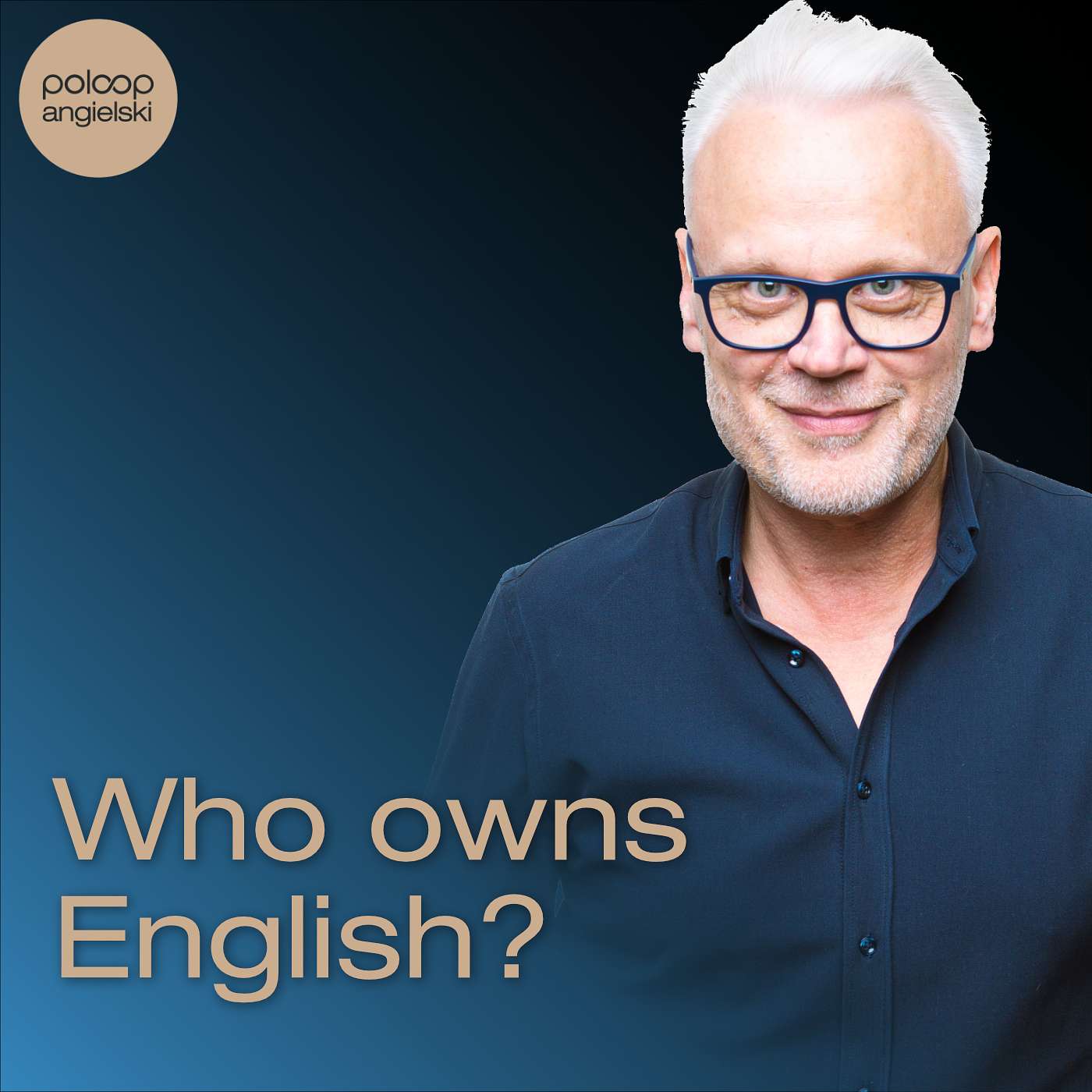
PoLoop Angielski
PoLoop Angielski
Episodes 35. Who Owns English?
Drawing inspiration from an article published by The Economist, titled "As it spreads across the world, who owns English," this episode challenges the notion that languages exclusively belong to their country of origin.
Link to The Economist article: As it spreads across the world, who owns English?
Link to episode transcript.
For more, visit: PoLoop Angielski Blog
Drop me a line: jacek@poloopangielski.pl
And join us on social media: Instagram and Facebook
Would you like me to help you master your English? You can find out more about my courses here.
0:01
Hello there, I'm Jacek Olender, and this is PoLoop Angielski Podcast. For more materials for learners of English and the transcript of this episode, go to my website, poloopangielski.pl.
0:12
Lying in front of me is the latest issue of The Economist, published on the 25th of May this year. And inside, I found a rather interesting article titled "As it spreads across the world, who owns English", so I thought it could be a good topic for today's episode. So let's dive into it. Have you ever wondered which country truly owns a given language? Well, in the case of some languages, for example, Polish, the answer is pretty straightforward. The Polish language belongs to Poles. However, when it comes to other countries, the answer is not that simple. It's a bit of a head-scratcher. It's something that is hard to decide about. So let's take French, for example. You would think it belongs to France, right? Well, think again. There are about four times as many French speakers outside of France, as there are within the country. Surprising, isn't it? And what about Portuguese? Should Portugal lay claim to it? Not quite, my friends. Brazil's population is about 20 times larger than Portugal's and there are a whopping 70 million people in African countries where Portuguese is an official language. So who does Portuguese really belong to?
1:54
Now, let's turn our attention to English. The English might have thought it's exclusively their property. It's the language of Shakespeare, after all, but hold your horses. We've got other countries in the British Isles, and friends across the pond, the Americans, staking their claim to, and if we throw in Canada, Australia and other English-speaking nations, the truth is English no longer belongs solely to the English. And if we decided all these countries share the ownership of the English language, we shouldn't forget that less than half of the estimated 1 billion English speakers actually reside in those core-English-speaking countries. Every single day, the number of English speakers born outside the traditional Anglosphere keeps growing at an incredible rate. In the European Union alone, around 40%, roughly 180 million people speak English. That's more than the combined population of Britain, Canada, Australia and New Zealand. And let's not forget India, shall we? Estimates range from 60 million to a mind-blowing 200 million English speakers. Now, English speakers love boasting about the language's global reach. The English often credit their open-mindedness and willingness to embrace words from different cultures for the spread of their language. But guess what? In non-English speaking countries, English is evolving into more than just a handy second language. It is becoming a sort of native tongue. Picture children in Northern Europe, Sweden, Denmark, they sound like they were born and raised in Kansas. They've grown up watching English movies, singing English songs, playing games in English and binge-watching English YouTube videos. English is practically ingrained in their DNA, which means that it's an integral part of who they are. It's difficult even to think of this language that they speak as a second language. And here's the most interesting part of the article. Many English learners strive for those quintessential American or British accents and styles. Indian English speakers, for instance, and that's what I learned from the article, are often advised to steer clear of certain Indianisms and opt for saying things like "What's your first name?" instead of "What is your good name?" but as millions of new English speakers make the language they own, they care less and less about sounding British or American. A whole generation of post-colonial novelists fiercely mix native words and phrases into their English prose without any translations or explanations. A good example could be a Nigerian writer - Chimamanda Ngozi Adichie. If you read any of her books, for example, Americana, you know what I'm talking about. They are breaking the mould, doing something that hasn't been accepted before, and it's absolutely brilliant.
5:49
Now, here's the deal, my fellow English learners, English is a living, ever-evolving language, we should embrace its incredible diversity, the various accents, vocabulary items and grammar quirks, and instead of obsessing over one correct standard, revel into a delightful richness that different English dialects bring. Discover how rules of the language differ depending on the part of the world it is spoken. Collect expressions that are specific to a given variety of English. Notice the differences in pronunciation. Keep exploring, keep learning and remember, English is yours, as well.
6:39
And that's the end of today's episode of PoLoop Angielski Podcast. I hope you thoroughly enjoyed it. And I wonder if you've noticed that it is peppered with various phrases related to the idea of ownership. You might find it useful to listen to this episode again and find all the words and phrases we can use to talk about owning something. Also, I highly recommend reading the original article, the link to which you can find in the notes to this episode. Thanks for tuning in today, and until next time, happy English learning
Transcribed by https://otter.ai





